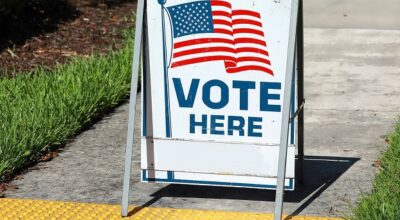Town Eyes BPOL Tax, Tax-Exempt LU Properties
Published 4:08 pm Tuesday, September 27, 2011
HAMPDEN-SYDNEY – While Marshall Dillon was once the rule of law in Dodge City, the Dillon Rule remains law throughout the Commonwealth of Virginia and underlay key concerns raised by the Town of Farmville and Prince Edward County during last week's County-sponsored community legislative meeting.
If the Dillon Rule doesn't expressly give localities the power to do something, they are powerless to do it.
“I'm fully aware of most of these issues,” 60th District House of Delegates member James Edmunds said in response to the concerns aired by Town Manager Gerald Spates and County Administrator Wade Bartlett. “I certainly understand the restrictions state government can place on localities.”
The former Halifax board of supervisors member summed up the Dillon Rule as saying, “basically the state knows more than you guys do and tough luck. That's pretty much how that works…I absolutely don't agree with that.”
There are many aspects of the Dillon Rule that have merit, Del. Edmunds acknowledged, most of them geared toward uniformity across the state so that prospective industry looking to locate in Virginia will know what they can expect in any locality.
“But there's still some aspects of it that are very limiting to the local governments,” the Republican, who is running unopposed for reelection, said during the event held at Hampden-Sydney College.
During the meeting, the Town, the County, Prince Edward County's public school system and Longwood University offered up their major state-related issues to Del. Edmunds and 22nd District State Senate candidates Bert Dodson, the Democrat, and Republican Tommy Garrett.
Following their presentations, Del. Edmunds and Garrett and Dodson were provided time to address the issues that were raised.
For the Town of Farmville, said Spates, one of the big issues “is the BPOL tax, which is our Business and Professional and Occupational License tax…We're opposed to any restrictions on that tax, either with that, machinery and tools or excise tax unless the state comes up with some type of neutral revenue source with which to replace that.”
Also, the town manager said, “we have a lot of state and federal land located within the Town of Farmville, as well as Prince Edward County, and we would like, in lieu of taxes on this tax-exempt property, that there's a service fee that is applied to those properties for the local governments providing services to those properties.”
Continuing the financial theme, the third issue raised by Spates is that the Town of Farmville “feels the County should have the same taxing power as the Town, as long as they don't infringe on the ability of the Town to (generate tax revenue). There are some taxes the County can't impose because the towns already have them.
Another key issue for the Town of Farmville is the amount of tax-exempt property in the Town's limits, specifically those properties owned by the Longwood Real Estate Foundation.
“When they purchase property the property becomes tax-exempt and it affects local governments…It is used for university uses but it still affects the local government. We have no say-so. I don't what the intent of the legislature (was) when they passed it, to make all those properties tax-exempt, but a good example,” Spates said, “is we had one piece of property that overnight we lost fifty-some thousand dollars in real estate taxes; the County, I think, lost two hundred and some thousand dollars. It does have an impact. We think there ought to be some type of fee, in lieu of taxes, for state property and that is something we'd like the General Assembly (to address).”
The Town's concerns were sympathetically received by Del. Edmunds.
“I've already drafted a bill for one of them,” the delegated said.
Del. Edmunds readily agreed “there are not many opportunities for you guys to generate revenue… And I will continue to fight to maintain that we're able to have those options.”
Localities should have greater ability to shape their destiny and, the delegate pointed out, they are not likely to be so foolish as to raise taxes so high they damage their community's future.
“I think localities can understand that if their machinery and tools tax rate is such that they can't get industry to locate there,” Del. Edmunds said, offering an example, “they'll adjust it and that should be their choice…”
The Town of Farmville and Prince Edward County want more revenue options, in fact, to more fairly distribute the tax burden across the community, rather than being forced to generate all revenue through one or two taxes on a certain segment of the population-such as real estates taxes.
Del. Edmunds is such a believer in allowing localities greater flexibility to shape their future that he has drafted bill that would allow localities, by a referendum, to increase their sales tax to support K-12 education.”
The delegate fears the legislation won't escape the committee room but said, “I still think if the citizens want to improve their school system-and they're willing to pay another penny on their sales tax-then they should have that opportunity. Who am I to tell any county in Virginia that they can't do any more for their schools than what they can do with their real estate and personal property tax rate?
“And I don't think it's fair to keep on hitting the same folks when towns and cities…they can do what they want to. It doesn't seen fair to me,” the Halifax farmer said, “and that's something I'm going to look at this session.”
Regarding the Town of Farmville's revenue problems with tax-exempt property owned by real estate foundations, the delegate said, “I don't know how that can be addressed as a bill and fixed at the state level, short of saying no foundations can be tax-exempt. I do like the idea of having a service fee…Maybe charge a fee for the number of citizens you're serving…”
With localities providing fire and police protection to those properties, he noted, “it's not really fair” to receive no revenue to help pay for those services.
“Definitely, something could be drafted to take care of that,” Del. Edmunds said.
But will it pass both houses of the legislature into law?
The battle won't be from Democrats opposing a Republican's bill, according to Del. Edmunds.
“Pretty much all of our issues now are geographic in nature (not partisan) and this is urban versus rural issues and I see it in Republicans and Democrats both. I'm at odds more with Northern Virginia than I ever have been with Democrats because, strictly, their issues are different. They don't understand us,” Del. Edmunds said, “and I don't understand them, quite frankly.”
Both Senate candidates, Dodson and Garrett, expressed belief that localities know what is best for their own community.
Among the issues raised by Longwood University President Patrick Finnegan was the state's $10 million budget reduction for higher education and last year's legislation calling for Virginia's institutions of higher learning to generate 100,000 new degrees within the next several years, enrolling and graduating more Virginians.
President Finnegan expressed the hope that Governor McDonnell would use a portion of the state's budget surplus to erase the $10 million reduction, which would be shared by all the Commonwealth's state-supported institutions of higher learning.
“There was additional funding for higher education last year and we're very appreciative of that but we have this $10 million budget reduction…a kind of a cloud hanging over us,” President Finnegan said. “We're not sure but we've estimated that if this stays in place and is split among the higher education institutions in Virginia that our portion could be anywhere between $350,000 and $500,000, which is a considerable hit to us…If we have to make that budget reduction, the further we get into the fiscal year the harder it's going to be to adjust…We hope that this $10 million shortfall will be covered in some other way and that it's not passed on to the higher education institutions because it would take a step back…”
Since 2008, LU's president noted, Longwood's funding from the state has been reduced by 36 percent, or $9 million.
“So additional base operating funds would be very important to the university as we try to move forward…” he said.
“We want to make education affordable and accessible. The commonwealth's goal is for the state to fund 67 percent and for 33 percent to come from tuition and fees. Last year…we had 49 percent coming from the state and 51 percent (from tuition and fees).
“We're finding efficiencies, we're doing what we can to make sure that this education stays affordable…” President Finnegan stressed.
In response, Garrett said that “higher education's got to be a priority…”
And Dodson, noting a “drastic drop in state support,” said that, “we've got to keep reinvesting in higher education.”




